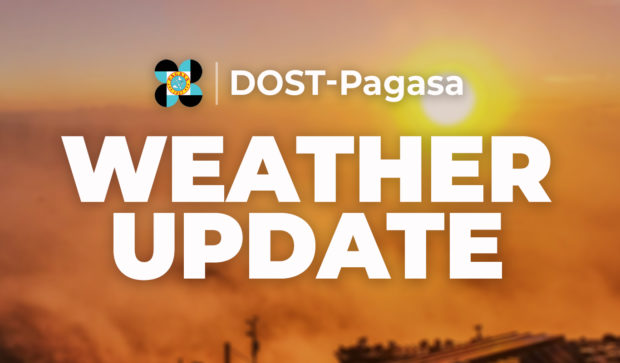Pagasa: Summer is officially here

UPDATED @ 3:41 p.m., March 23, 2024
MANILA, Philippines — The Philippine Atmospheric, Geophysical, and Astronomical Services Administration (Pagasa) on Friday declared the official start of the summer season as the amihan, or northeast monsoon, season ends.
Pagasa chief Dr. Nathaniel Servando made the announcement in a press conference.
READ: Pagasa forecasts two days of 46°C heat index in La Union
“Today, we officially declare the start of the Philippine summer based on analysis of the latest forecast,” Servando said.
Article continues after this advertisementThe Philippines only has dry and wet seasons. However, Filipinos commonly refer to the dry season as “summer,” despite the absence of such a season in the country.
In the conference, Ana Liza Solis, officer-in-charge of the climatology and agrometeorology division of Pagasa, mentioned that this summer “could be one of the warmest” dry seasons ever recorded in the Philippines due to the ongoing effects of El Niño.
Solis said that temperatures in the Cagayan Valley Region could reach 40ºC from March to May.
Additionally, the heat index, or the temperature that the human body feels, may reach the “danger” and “extreme danger” categories from April to May.
End of amihan marks summer
Meanwhile, in a statement, Pagasa explained that the retreat of the high-pressure area over Siberia indicates the apparent weakening of amihan.
“Furthermore, the strengthening of the North Pacific High has led to a gradual shift in the wind pattern from northeasterly to easterly and an increase in the air temperature over most parts of the country,” the statement read.
According to Pagasa, these changes signify the end of the amihan season and the onset of the warm and dry season.
While more warm and dry days are expected ahead, isolated thunderstorms are also likely to occur, particularly in the afternoon or evening.
“The public and all concerned government agencies are advised to continue their ongoing precautionary measures to minimize heat stress, optimize the daily use of water for personal and domestic consumption, and prevent any accompanying health risks associated with this climate condition,” it said.
Furthermore, Pagasa warned that reduced rainfall or drier-than-usual conditions would likely persist due to the ongoing El Niño, which could result in dry spells and droughts across most areas of the country.
It cautioned that “climate-sensitive sectors” such as water resources, agriculture, health, energy, public safety, and others may continue to be adversely affected.
“DOST-PAGASA will continue to closely monitor the country’s weather and climatic conditions and their likely impacts, therefore, the public and all concerned agencies are advised to regularly monitor for relevant updates,” Pagasa said.